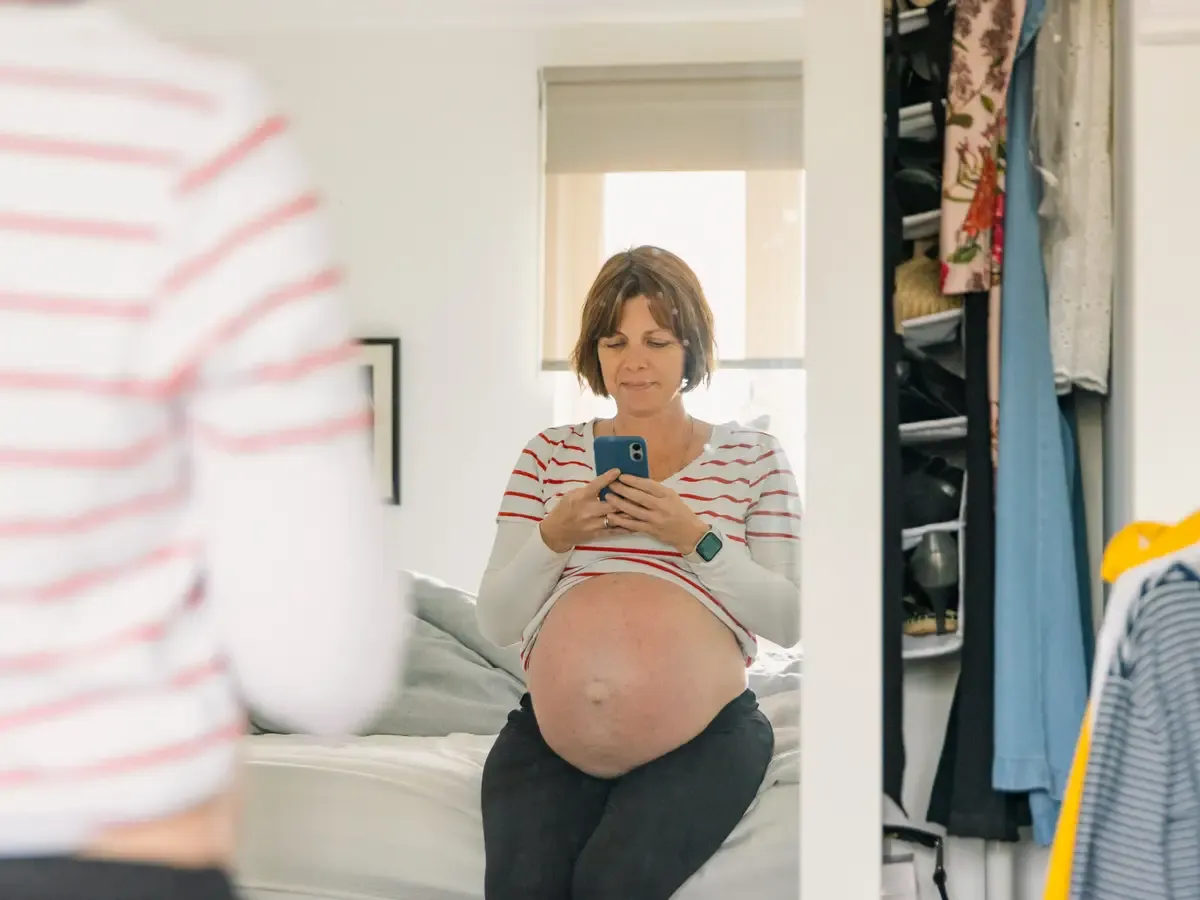Pregnancy and menopause can feel similar because they share many of the same symptoms. This can make it hard to tell which one you’re experiencing. By learning about the symptoms of both, you can better understand what’s happening in your body.
Common Symptoms of Menopause and Pregnancy
Both menopause (specifically perimenopause, the stage leading up to menopause) and pregnancy come with a variety of symptoms. These symptoms can vary from person to person and even from one pregnancy to another. Below is a breakdown of the symptoms you might experience in both situations.
Symptoms Seen in Both Menopause and Pregnancy
| Symptom | Seen in Menopause | Seen in Pregnancy |
|---|---|---|
| Missed period | ✓ | ✓ |
| Bloating and cramping | ✓ | ✓ |
| Fatigue and sleep problems | ✓ | ✓ |
| Mood changes | ✓ | ✓ |
| Headaches | ✓ | ✓ |
| Weight gain | ✓ | ✓ |
| Increased urination | ✓ | ✓ |
| Hot flashes and night sweats | ✓ | ✓ |
| Decreased libido | ✓ | ✓ |
| Incontinence (bladder issues) | ✓ | ✓ |
Symptoms Unique to Pregnancy
Some symptoms are specific to pregnancy and don’t usually occur during menopause. These include:
- Sensitive and Swollen Breasts
- Your breasts may feel tender, sore, or swollen early in pregnancy. This happens as your body adjusts to hormonal changes.
- Nausea (Morning Sickness)
- Nausea, with or without vomiting, is a common early pregnancy symptom. Despite the name “morning sickness,” it can happen at any time of day.
- Constipation
- Pregnancy hormones can slow down your digestive system, leading to constipation.
- Food Sensitivity
- You might notice changes in your taste buds or cravings. Certain foods or smells may make you feel sick.
Symptoms Unique to Menopause
Some symptoms are specific to menopause and don’t usually occur during pregnancy. These include:
- Loss of Bone Mass
- Lower estrogen levels during menopause can lead to a loss of bone density, increasing the risk of osteoporosis.
- Decreased Fertility
- During perimenopause, ovulation becomes irregular, making it harder to get pregnant. However, you can still get pregnant if you’re having periods.
- Vaginal Dryness
- Lower estrogen levels can cause vaginal dryness, making sex uncomfortable or painful.
- Cholesterol Changes
- Menopause can lead to higher “bad” cholesterol (LDL) and lower “good” cholesterol (HDL), increasing the risk of heart disease.
How to Tell the Difference Between Menopause and Pregnancy
1. Changes in Your Menstrual Cycle
- Pregnancy: A missed period is a key sign of pregnancy.
- Menopause: Periods become irregular and eventually stop.
2. Fatigue and Sleep Problems
- Pregnancy: Fatigue is caused by high levels of progesterone.
- Menopause: Trouble sleeping and staying asleep can lead to tiredness.
3. Mood Changes
- Both pregnancy and menopause cause mood swings due to hormonal changes.
4. Hot Flashes and Night Sweats
- These are common in menopause but can also occur early in pregnancy.
5. Bloating and Cramping
- Both can cause bloating and cramping, but in menopause, cramping may signal an upcoming period.
What Should You Do Next?
If You Think You’re Pregnant
- Take an at-home pregnancy test.
- Confirm the results with your doctor to rule out false positives or negatives.
If You Think It’s Menopause
- Talk to your doctor to confirm and discuss your symptoms.
- Create a treatment plan, which may include lifestyle changes or hormone therapy.
Final Thoughts
Pregnancy and menopause share many symptoms, but there are key differences. If you’re unsure what’s causing your symptoms, it’s always best to consult a doctor. They can help you figure out whether you’re pregnant, entering menopause, or experiencing something else entirely. Understanding your body’s signals is the first step to taking control of your health!

